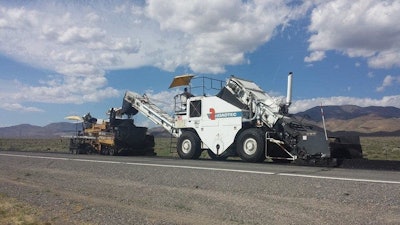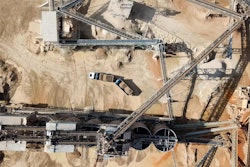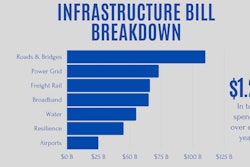
It's truly unfortunate that the literal backbone of America, our infrastructure, has been neglected for so long. Infrastructure problems affecting communities across the country have been put on the back burner since before the Great Recession.
Our roads have suffered. The U.S. has been underfunding its roadway maintenance for years, which has resulted in a $786 billion backlog of road and bridge capital needs. The bulk of the backlog ($435 billion) is in repairing existing roads. The American Society of Civil Engineers (ASCE) said that over 40% of the roadways in the country are in critical need of repair.
Our bridges have suffered. According to the American Road & transportation Builders Association (ARTBA), 1 in 3 bridges in the United States are currently structurally deficient. What that really means is that motorists are driving across bridges badly in need of repair 171.5 million times daily.
Our livelihood has suffered. Congestion due to inadequate infrastructure has added 37 minutes to what would otherwise have been a 30-minute trip in a typical American city. Traffic congestion on our major highways has led to nearly $75 billion in operational costs and 1.2 billion hours of lost productivity.
These issues are decades in the making and have been holding our country back for far too long. Recently, the Senate voted to pass the Infrastructure Investment and Jobs Act (IIJA). This legislation would fix our roads and structurally deficient bridges in need of repair, remove dangerous lead service water lines in countless communities, safeguard critical assets against increasingly severe weather trends, modernize aging transit fleets and much more.
What will the Funding Fix?
The historic bipartisan legislation includes $550 billion in new spending programs to help rebuild our crumbling infrastructure, keep America competitive with growing powers, create new, good-paying jobs and combat climate change in the process.
The legislation will be paid for with pre-existing federal obligations and policy adjustments. These adjustments re-purpose federal money and reduce federal spending in some programs.
With any hope, the bill will make it to President Biden's desk in the next month and states could see money start flowing through existing federal channels as soon as October. Here are a few issues Americans face every day that will be addressed under this bill.
Safety
Making sure all Americans feel safe on our roads is a huge undertaking give the current state of repairs needed. The ASCE says that over 40% of our road system is now in poor or mediocre condition. Overall, our deteriorating roads are forcing the nation’s motorists to spend nearly $130 billion each year on extra vehicle repairs and operating costs.
The IIJA provides $303.5 billion over five years for Federal Highway programs, a 35% increase from previous bills, which will help make a significant impact on the backlog of maintenance problems facing our crumbling roadways.
Roads aren't the only issue in need of some work. Our bridges are in bad shape. There are nearly 45,000 bridges in our country that need to be repaired and the estimated cost to repair or replace them, based on average price data from the U.S. Department of Transportation, would be $41.8 billion. The cost of doing nothing to repair these bridges though would be even higher. As years go on, the likelihood of these bridges failing increases and with that the chance of catastrophe.
The proposed legislation in the bipartisan infrastructure bill includes $40 billion in dedicated resources for bridge repair, replacement and rehabilitation, which is the single largest dedicated bridge investment since the construction of the interstate highway system
The bill also provides $55 billion to upgrade water infrastructure and replace lead service lines throughout the country. The Drinking Water and Wastewater Act reauthorizes both the Clean Water State Revolving Fund(SRF)and the Drinking Water State Revolving Fund at$43.4billion and appropriates $15 billion through the Drinking Water State Revolving Fund to replace lead service lines. Both the Drinking Water and Clean Water State Revolving Funds would each receive $14.7 billion over 5 years.
Congestion
Congestion on our roadways is a huge problem and one that this increase in infrastructure funding will hopefully fix. In 2019, congestion added 37 minutes to what would otherwise have been a 30-minute trip in a typical American city. Traffic congestion on our major highways has led to nearly $75 billion in operational costs and 1.2 billion hours of lost productivity.
As the backlog of rehabilitation needs grows, motorists are forced to pay over $1,000 every year in wasted time and fuel. Overall, our deteriorating roads are forcing the nation’s motorists to spend nearly $130 billion each year in extra vehicle repairs and operating costs.
Congested airports, increased trucking expenses and old stormwater conveyance systems create additional costs that get passed on to consumers. The delayed process of funding our infrastructure has imposed this hidden tax.
The bill would invest $17 billion in port infrastructure and $25 billion in airports to address repair and maintenance backlogs, reduce congestion and emissions near ports and airports, and drive electrification and other low-carbon technologies.
Connectivity
Transit is a huge winner under this legislation with $66 billion being allocated to passenger and freight rail. The program will also fund planning, design, demolition, and reconstruction of street grids, parks, or other infrastructure through $1 billion of dedicated funding.
Connectivity doesn't just mean roads and bridges. If the last year has taught us anything, it's that staying connected is paramount to keeping our country moving. It also brought to light the lag in connectivity. our country faces. According to the White House Fact Sheet, more than 30 million Americans live in areas where there is no broadband infrastructure that provides minimally acceptable speeds – a particular problem in rural communities throughout the country. The deal makes a $65 billion investment in broadband to help ensure Americans have access to reliable high-speed internet.
For far too long, Congress has agreed that infrastructure is an American priority but has let political gridlock get in the way of concrete action. It's time for lawmakers to put policy ahead of politics and get to work passing this bill.




















